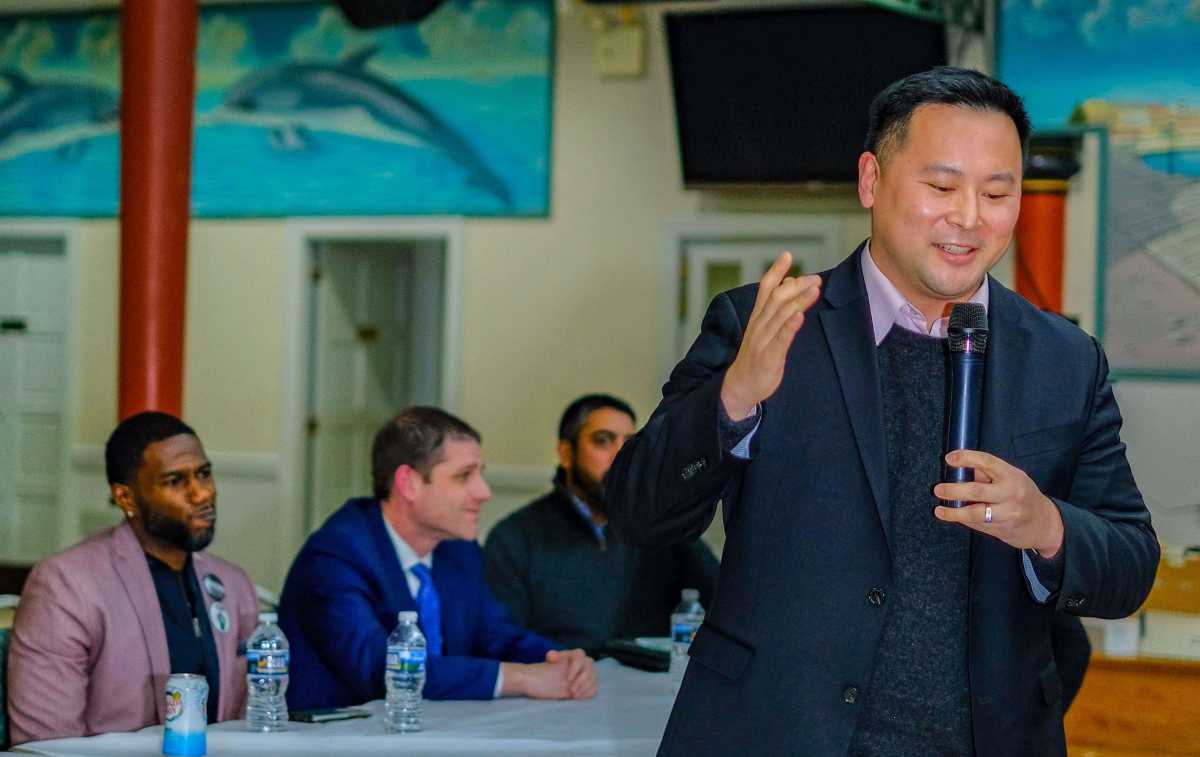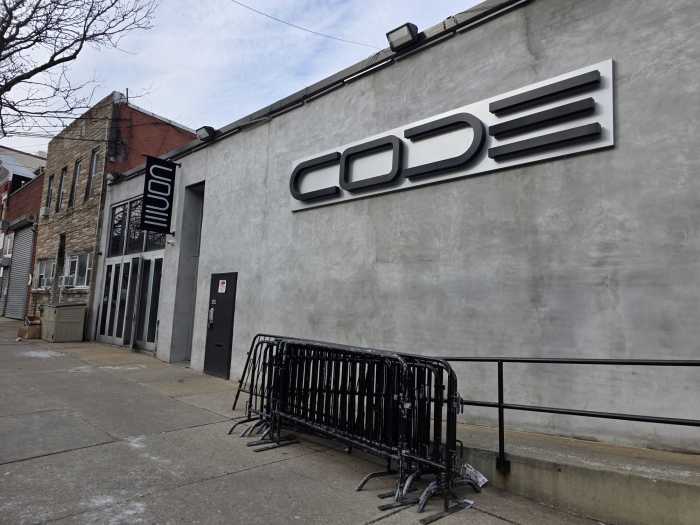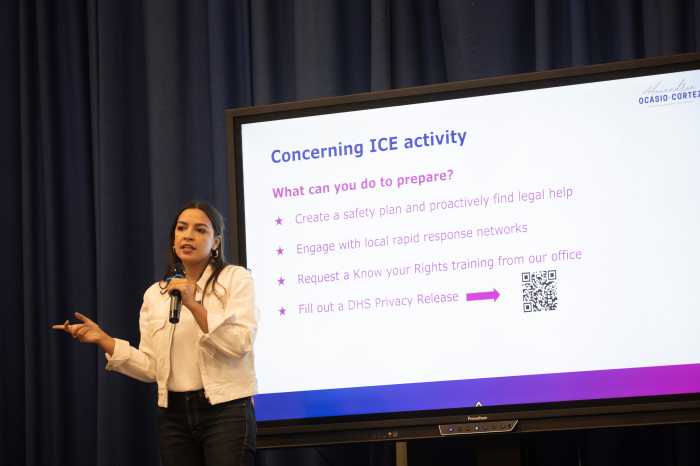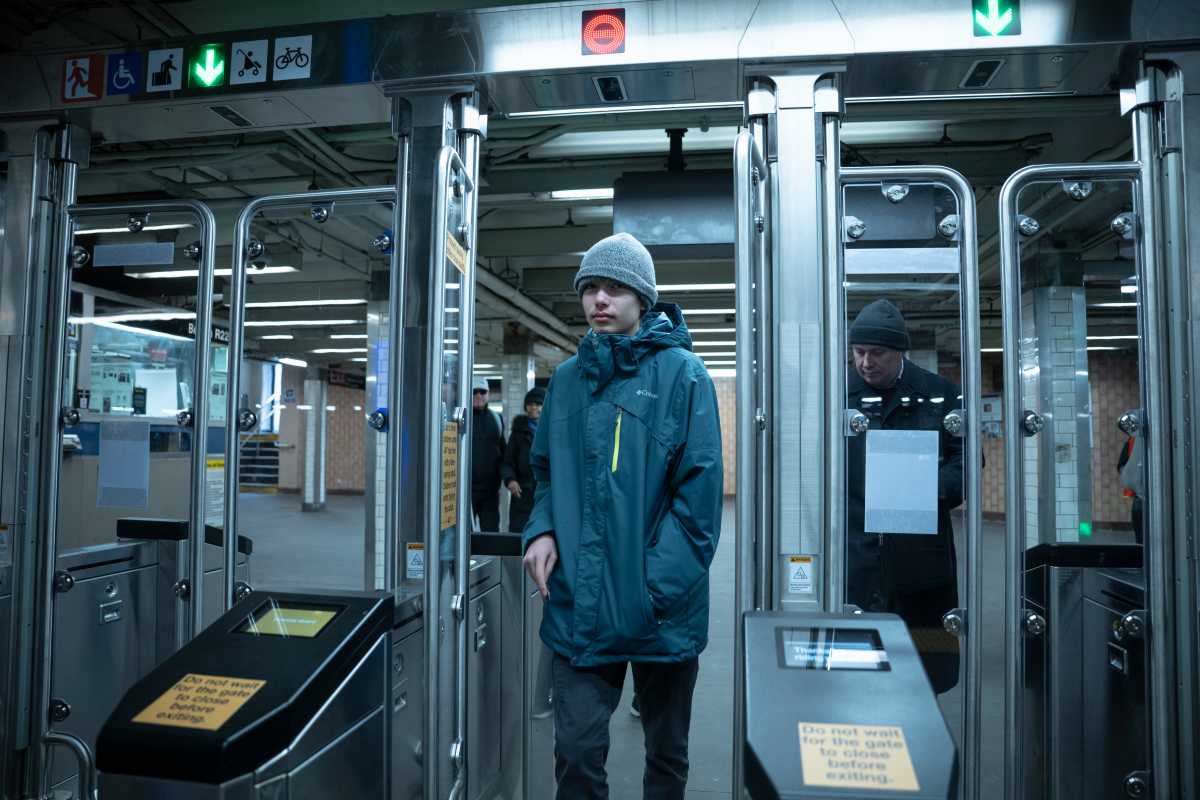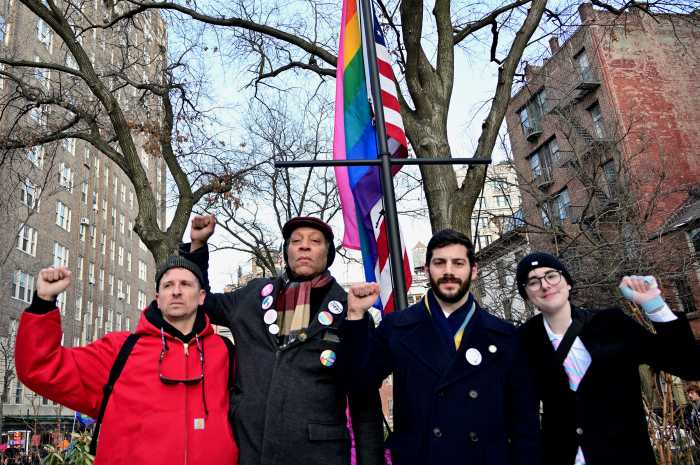The list of candidates for public advocate may have dwindled from over 20 to just 11, several of the remaining hopefuls for the seat found themselves justifying the need for a seat that has been called little more than a place-holder office.
At Cretans Association Omonia on Jan. 30, Flushing Assemblyman Ron Kim, investigative journalist Nomiki Konst and Brooklyn City Councilman Jumaane Williams all said that they plan on keeping the office relevant by standing up for key city-wide issues in unique ways.
Kim said he wants to use the public advocate’s office to aid people struggling with student loan debt, a burden which he says has set those individuals financially when it should boosted personal income.
“I have a platform to transform this office to directly help people by buying and cancelling student debt and personal debt which is crippling generations of people in our city,” Kim said. “Over a million young people are struggling with a lifetime of student debt. This is not a compassion plea. If we forgive this debt, we can actually spur economic growth. These people are seven to nine years behind in economic growth… If we can actually use this office to cancel debt, we’d be the first in the nation to do so.”
An Astoria resident, Konst plans to use her journalistic skills to uncover what New Yorkers need to know about their city officials and agencies to challenge alleged corruption regarding the real estate industry.
“At the end of the day, we have to start taxing the rich… and most importantly the real estate developers who have controlled this city and have been deregulated since the mid-70s for trillions of dollars in tax breaks,” Konst said in response a question regarding funding the MTA for transit modernizations. “It’s time that we flipped the script and start taxing these guys so we can start funding our infrastructure.”
When Williams ran for lieutenant governor in the 2018 election cycle against Kathy Hochul, who won a second term, he ran on the notion of turning the state office into a sort of public advocate for all of New York.
“People think it’s just an amorphous office, but there’s more to it than that,” Williams said, claiming that a form of public advocate has been in existence in one form or another since the 19th century.
Williams envisions himself holding the public advocate’s office to appoint the right people to the City Planning Commission to protect the interests of residents and to take on transit issues.
David Eisenbach, who ran for public advocate in 2017, is back for another round and wants to challenge the de Blasio administration and use the office to fight the closing of Rikers Island.
Eisenbach, a history professor at Columbia University, called the decade-long plan to close Rikers in favor of community jails a talking point for re-election which would not treat the core problem in criminal justice.
“The problem of overcrowding and abuse is not caused by the buildings, it’s caused by a failed bail system that needs to be reformed… and that we punish those guards who are abusing or who were abusing prisoners regularly,” Eisenbach said. “[Community jails are] a bad solution to a problem [the city] did not even want to address.”
City Councilman Eric Ulrich, who with Kim and Konst represent the Queens field of public advocate candidates, did not attend the forum.

